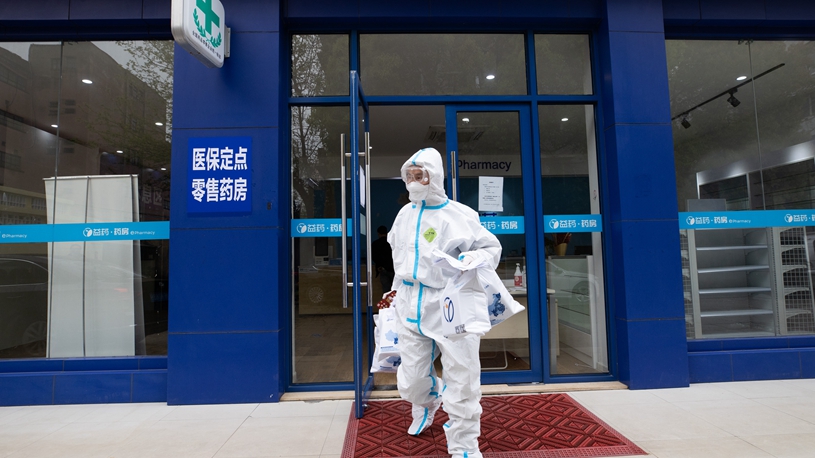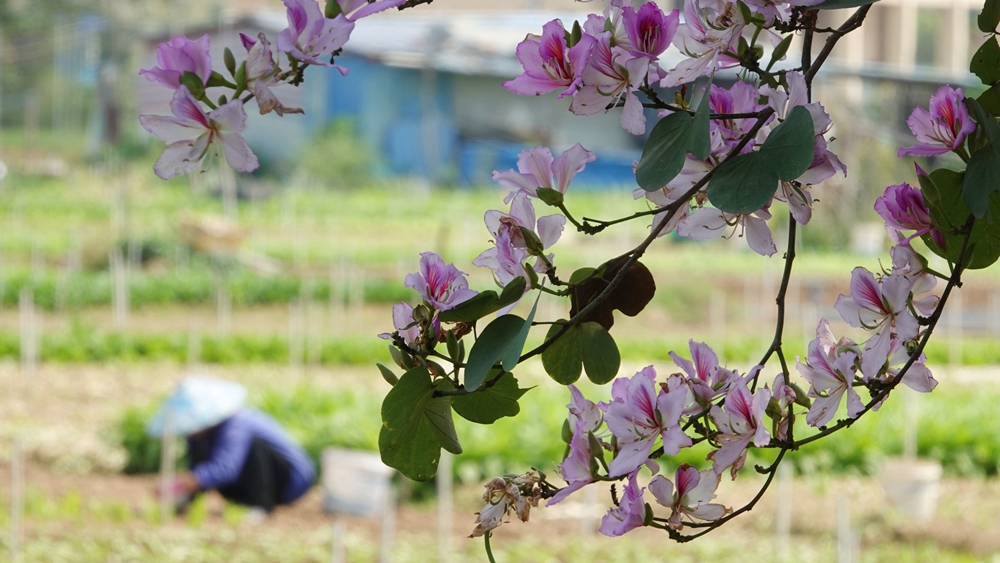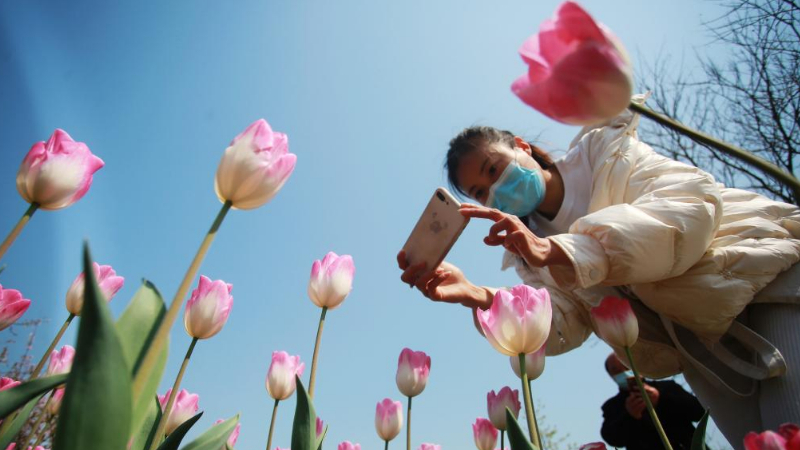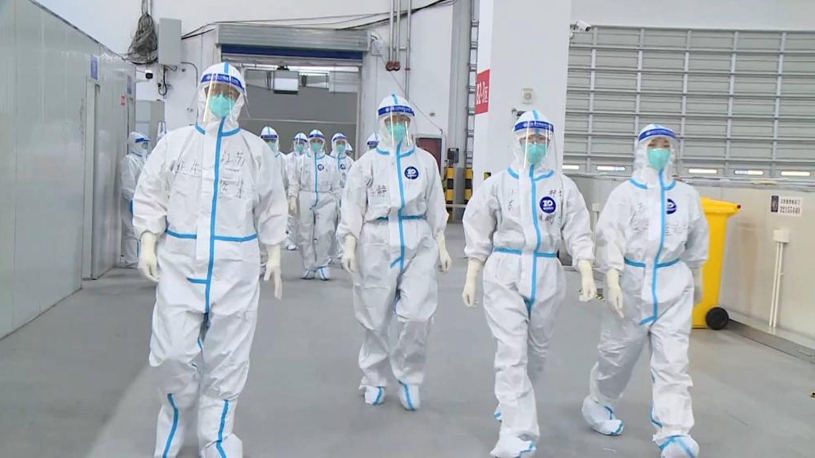* The largest makeshift hospital in China's business hub Shanghai was put into use on Saturday.
* The hospital covers about 600,000 square meters with a capacity of 50,000 beds.
* All construction details are reflective of the utmost care for patients and medical staff.
SHANGHAI, April 9 (Xinhua) -- The largest makeshift hospital in China's business hub Shanghai was put into use on Saturday to aid the megacity's fight against resurging COVID-19.
The hospital, converted from the National Exhibition and Convention Center (Shanghai), covers about 600,000 square meters with a capacity of 50,000 beds.
Thanks to the arduous efforts of more than 25,000 builders, the hospital will inject confidence and strength into Shanghai's epidemic prevention and control work.
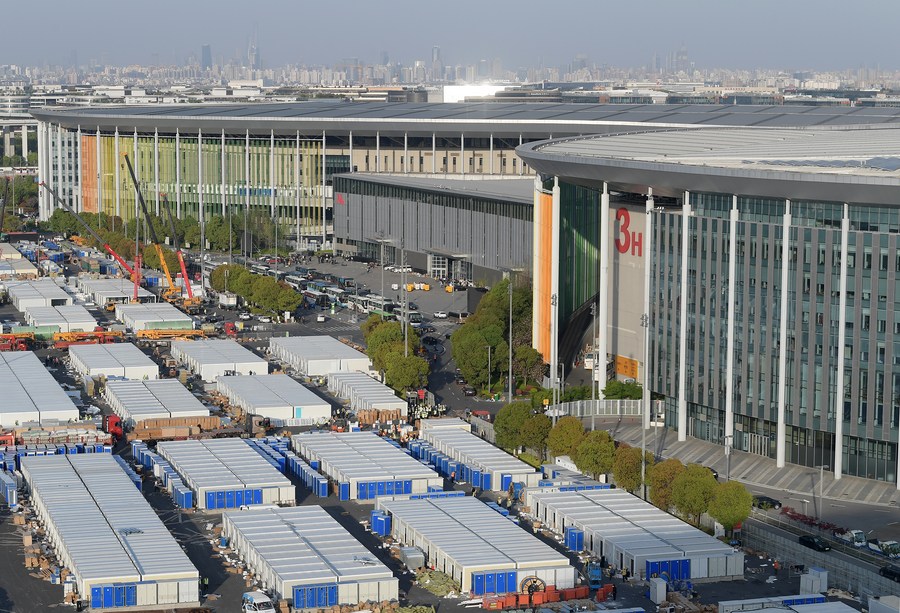
Photo taken on April 9, 2022 shows the exterior view of a makeshift hospital converted from the National Exhibition and Convention Center (Shanghai) in east China's Shanghai. (Xinhua/Li He)
AID FROM ACROSS THE COUNTRY
Shanghai has been reporting a high number of COVID-19 infections since March and has registered over 150,000 COVID-19 infections as of Friday. At the crucial stage, construction workers from across the country raced against time to construct the hospital.
Zhao Zeming and his team, from Guangzhou, capital of south China's Guangdong Province, received a call about aiding Shanghai at 1 a.m. Tuesday. Their mission was to assist in the construction of part of the sewage treatment system in the makeshift hospital.
"Our 12-member team assembled within half an hour after receiving the call. And we took the train to Shanghai immediately following COVID-19 nucleic acid tests at 5 a.m.," said Zhao, who works for the China Construction Third Bureau Green Industry Investment Co., Ltd.
"We don't want to waste any time," he added.
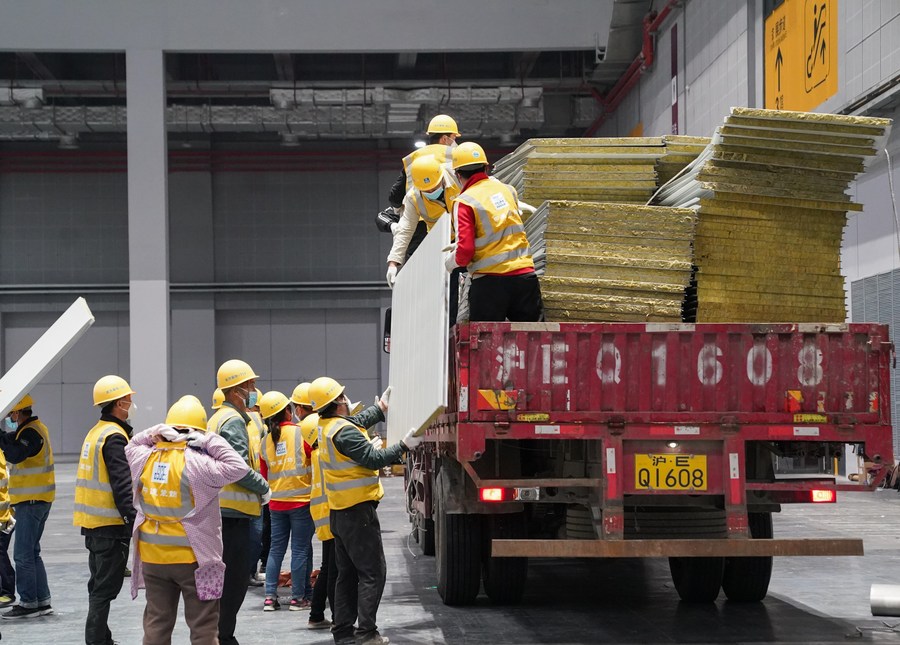
Staff members work to convert the National Exhibition and Convention Center (Shanghai) into a makeshift hospital for COVID-19 patients in east China's Shanghai, April 5, 2022. (Xinhua/Ding Ting)
Tens of thousands of construction workers from Hebei, Shandong, Guangdong and other provincial-level regions have traveled from across China to aid the city.
"There is no need for hesitation to aid the construction," said 22-year-old Li Bin, one of the first batch of 5,000 constructors sent by the China Construction Second Engineering Bureau (CCSEB).
"Our task is heavy in such a short construction period," Li added. "I can barely sit down for a meal."
"All construction institutions have made the best efforts to advance projects as quickly as possible," said Jin Chen, deputy director of Shanghai's housing and urban-rural development management committee.
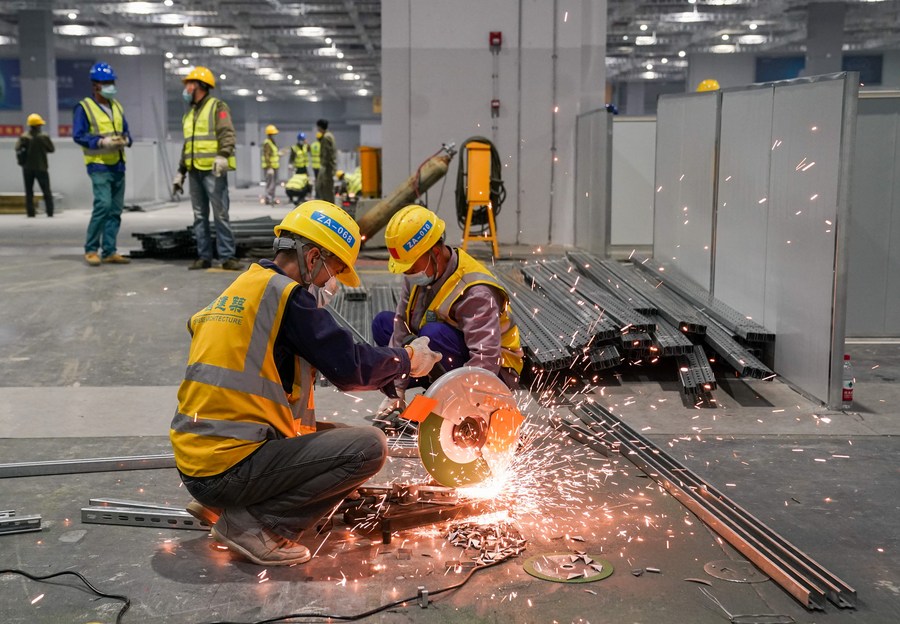
Staff members work to convert the National Exhibition and Convention Center (Shanghai) into a makeshift hospital for COVID-19 patients in east China's Shanghai, April 6, 2022. (Xinhua/Ding Ting)
RACING AGAINST TIME
"All other work should make way for the hospital construction. The sooner it is built, the sooner more patients can be treated," said Li Guangbin, Party chief of the Shanghai branch of China Railway Construction Engineering Group (CRCEG).
Starting from the evening of April 3, the design company and multiple construction institutions carried out simultaneous construction in eight venues at the exhibition center.
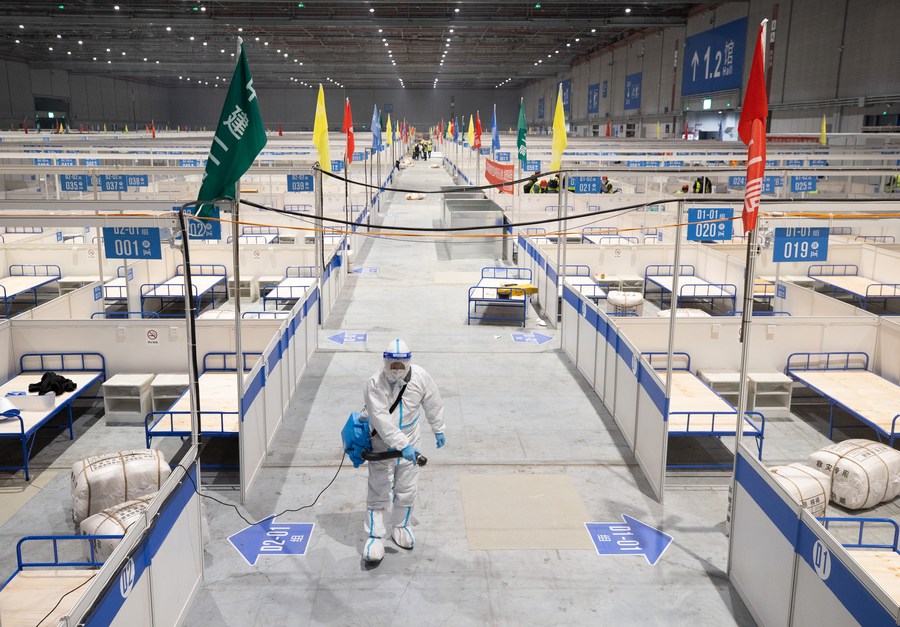
A staff member disinfects the construction site of a temporary hospital converted from the National Exhibition and Convention Center (Shanghai) in east China's Shanghai, April 8, 2022. (Xinhua/Jin Liwang)
The construction teams not only faced a number of obstacles such as extensive construction areas and a tight deadline for completion but they must also efficiently coordinate production materials and construction personnel on the premise of epidemic prevention.
"It is urgent to build the makeshift hospital and the difficulties and challenges are beyond imagination," said Su Zhenhua, deputy general manager of the CCSEB. "But we must ensure speed and quality at the same time. This is our responsibility to the medical staff and patients."
The hospital was mainly composed of independent living areas for medical staff and patients as well as buffer zones with two separate channels to avoid the risk of cross-infection.
Independent toilets and shower rooms along with a sewage system were deployed in the hospital, where domestic wastewater would not be discharged unless undergoing repeated disinfection. A super-large exhaust system was also installed to ensure the circulation of clean air.
"We need to equip each bed with three sockets while supplying hot water around the clock. A two-way call system for communication between medical staff and patients was also installed," said Tang Mingjin with the Shanghai branch of CRCEG.
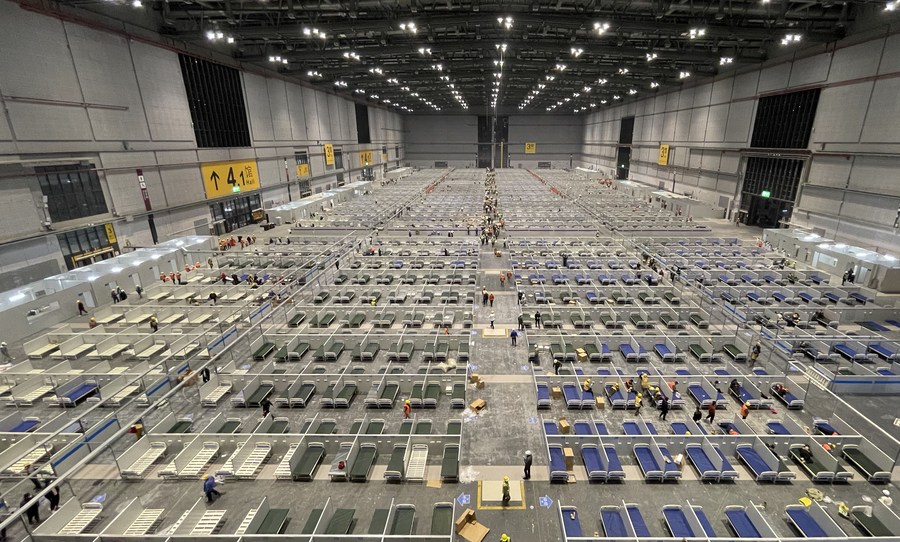
Staff members work to convert the National Exhibition and Convention Center (Shanghai) into a makeshift hospital for COVID-19 patients in east China's Shanghai, April 8, 2022. (Xinhua/Ding Ting)
Construction workers have also installed a large number of ultraviolet disinfection lights at buffer zones to ensure the safety of medical staff. All construction details are reflective of the utmost care for patients and medical staff.
Shanghai has built over 100 makeshift hospitals for COVID-19 treatment with over 160,000 beds, the Shanghai municipal government said at a press conference on Saturday.
There are also eight designated hospitals with over 8,000 beds in Shanghai.
(Video reporters: Ding Ting, Pan Xu and Di Chun; video editors: Zhou Saang, Yin Le and Zhu Cong)■


